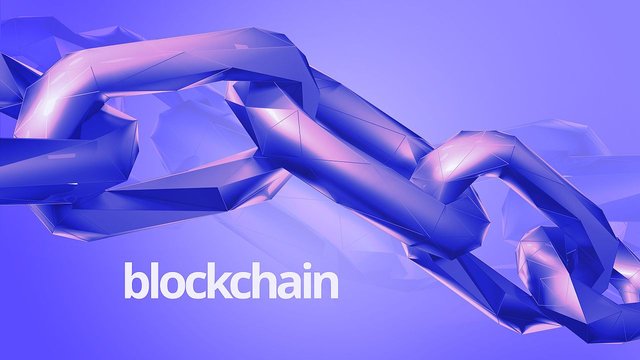Potential applications of blockchains
Hello Reader,
I frequently get asked a specific question from people that are learning about blockchains. Often they are struggling to grasp exactly what they are capable of and why they are thought to be so revolutionary.
In this article, we are going to take a look at a number of examples of how blockchain technology can revolutionise existing industries or even create entirely new ones.
At the core, blockchains are decentralised permissionless databases. Their primary utility is that they remove the need for trusted middlemen, lower cost and speed up traditional processes and systems. Additionally, they offer added benefits of accuracy through logic driven execution and automatic backup of transaction records.
With this in mind, there are a number of concepts and applications that are ripe for reinvention using this new technology.
Currency
Hopefully the first example is obvious if you've already spent a little time on this site. Blockchains are the technology that make trustless decentralised digital crypto currency possible. Take a look at this article for more on crypto currency.
Smart Contracts
Traditional legal contracts are offline analogue agreements between two or more parties to take a certain course of action or perform an agreed upon exchange.
The invention of blockchain technology creates the possibility of smart contracts. The concept was initially proposed by early cypherpunk Nick Szabo who we first came across when looking at the inspirations of bitcoin.
They take the concept of a legal contract and convert it to computer code which is stored on and executed by the blockchain. In effect, they are self executing contracts that remove the need for traditional middlemen.
Each smart contract contains the terms of a transaction and has the ability to automatically execute and enforce those terms.
In theory, this means that many of the legal exchanges that are traditionally facilitated by middlemen (e.g. lawyers) can now be executed automatically for less cost and lower risk.
Let's illustrate with my favourite example, buying and selling an expensive asset, for example a house.
Today, you would work with a conveyancer to draw up a legal contract to purchase the house. The person you are buying from would do the same with their own conveyancer. At an agreed date, you would transfer the funds to your conveyancer who would then send it on to the sellers conveyancer and obtain the title deeds to the property for you. The sellers conveyancer would then send the funds to your seller and at that point the process is complete, you now have the deeds to your new house and the seller has the funds.
This process can take months to complete and of course both you and the seller will be spending significant sums of money on fees paid to your respective conveyancers.
How could this exchange be facilitated by a smart contract instead?
It is possible to digitise title deeds and store them on the blockchain. Once on the blockchain, a seller could create a smart contract which offers the property for sale for a set price for a pre-determined window of time. During that window, any prospective buyer could send the required funds to the smart contract to purchase the title deed and therefore the property. Once the smart contract receives funds, it runs an internal logic to check if it has received enough to purchase the title deed. If it has, it automatically transfers the title deed to the buyer and the funds to the seller and could even refund any extra funds sent by mistake back to the buyer. If it hasn't received enough funds, it will wait until enough are received or the time window on the contract expires at which point it will refund the insufficient funds back to the buyer.
At this point, the seller has the funds they wanted and the buyer has the title deed which they can verify ownership of to any interested party by signing a transaction with the respective private key.
We could even take this one step further and enable multiple participants to contribute funding and share ultimate ownership. For example a buyer may contribute a deposit and a mortgage provider could provide the balance. Title deeds could then be split between the buyer and mortgage provider. Further still, repayment of the mortgage could take place automatically via the blockchain with title deed ownership percentages being adjusted instantly.
This entire process could have taken place without either party ever having met the other. Further, it is conducted without either individual needing to trust the other or use a third party escrow or lawyer to act on their behalf.
The transaction is completely visible and verifiable on the public blockchain and both parties are now free to do whatever they wish with their respective assets. This whole process could be conducted in a matter of minutes rather than months and both individuals are substantially better off having avoided paying significant fees.
Starting to sound something like a revolution?
Applications of Blockchains and Smart Contracts
This technology can be applied to many different traditional processes which currently require the use of middlemen. Let's take a look at some specific examples...
- Buying and selling expensive assets such as property or vehicles can be completed by smart contracts instead of middlemen.
- Identity verification can be digitised and stored on the blockchain (e.g. digital passports, driving licenses, birth certificates etc).
- Currently KYC/AML regulations prove a significant administrative burden for companies in a number of industries (e.g. finance). If identity can be proven digitally, this process can be automated and dramatic cost savings can be realised.
- Renting out property can be made cheaper as the process of collecting rent and identity verification can be automated through the blockchain
- Digital political voting systems can be made provably unriggable
- Improved automation and governance of business management processes (e.g. capital approval processes)
- Exchange of shares in companies can be conducted directly between parties rather than through an intermediary with ownership transfer being settled immediately rather than through slow paper work.
- Supply chains can be automated whereby both ends of the supply chain, manufacturing and customer delivery, are linked via a blockchain. Customer payment and receipt can trigger automatic production of replacement stock further up the supply chain.
- Healthcare records could be stored on the blockchain and only shared with selected individuals and third parties through the use of special private keys
- Transaction clearing and settlement between banks can be automated offering dramatic reductions in resource requirements and comparable improvements in accuracy and speed.
- Accounting and auditing processes can be automated with concepts such as real time auditing and verification of balances becoming possible. This enables greater company transparency and confidence in public markets which can act to encourage economic growth.
- Provision of computing resources such as processing power, storage and bandwidth can result in instant automatic payment for participants
- Internet of Things devices can be given access to blockchains to facilitate low cost micro transactions automatically. For example, a solar panel could earn money in real time as it provides power to the national grid. There would be no need for burdensome administration and settlement processes, instead once power has provably been provided, a smart contract would provide immediate remittance
- Automated cars could use blockchain technology to pay for required items such as fuel, tolls and parking without requiring manual intervention
- Select communications can be permanently archived on the blockchain with participant identities being provable using identity verification. This would be incredibly valuable for certain heavily regulated industries such as finance which require public record of certain communications.
- Digital fund portfolios can be automated through smart contracts. You might send a digital currency to a smart contract which would then use that to purchase an agreed portfolio of many different blockchain currencies and assets. This could be taken one step further to create automatic index funds, whereby your portfolio is automatically rebalanced to always contain the top 100 digital assets.
- Prediction markets can be created whereby the collective wisdom of the crowd is used to predict the outcome of certain events with greater accuracy than currently possible.
I think that's enough food for thought for the time being. At least five of those make me incredibly excited for the future of blockchain technology.
In my upcoming articles, I will be exploring some of these concepts in much more detail using real world examples which already have functioning prototypes.
I'll also be updating this article as I come across new ideas and applications so please check back from time to time.
Sayonara.
If you’ve enjoyed this article, it would be my honour to have you as a regular reader.
Yours, X
Image: Wikimedia.org
Roxy is ready for her close up...


interesting, I'm pretty ignorant on these issues... what we really need is blockchains to assure international markets don't crash and that speculation doesn't become so leveraged that the system crashes... now that would be invaluable ! (-:
We can always dream :)